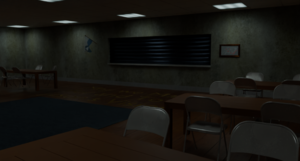Jason March (Wisconsin Politician)
Jason March | |
|---|---|
| Born | July 4, 1973 Bayfield, Wisconsin (prior to 2000), Bayfield Capitalist Zone (post 2000) |
| Died | May 2, 2003 (aged 29) |
| Nationality | Bayfielder |
| Occupation | Bayfield Commission Leader |
| Years active | 1995-2003 |
| Spouse(s) | Mary March (m. 1994) |
| Parent(s) | Julia and Ryan March |
| Relatives | Brother: Aaron March |
Jason March (Code named "Piggy" by the Midwest Union) was the first Commissioner of the Bayfield Capitalist Zone (BCZ) and was a county board member in the former Wisconsin county of Bayfield. He was known for establishing the BCZ and was found dead on May 2nd, 2003 in his home to 3 bullet wounds to the back of the head.
Early Life
March was born to a farming family on July 4th, 1973. According to his brother and parents, he was infatuated by his grandparent's stories of World War 2 and the liberation of countries. He attended anti-communist rallies in his teens when his hometown's family store was repossessed by the Wisconsin state government.
Commissionery
Government Enforced Capitalism
Jason's early influence on the county was characterized by the "You get what you work for." which he ran with till his death. During December of 1997 he ordered that the state-owned grocery store in the county's seat of Washburn to be returned to the original family owners and that it be sourced by local farmers unless absolutely necessary, he did the same with the former WELS church in the area that had been absorbed into Methodism. He also ordered in 1998 that state and federal taxes not be paid, citing the county's "already self sustaining" infrastructure and a year long refusal of funding from the state.
Secession
See also: Bayfield Secession
During the secession, his older brother defected to the Midwest Union in 2000 and became the 2nd People's Elect of the Midwest Union.
2002 Commission Address
During March's 2002 address, he made multiple controversial statements, denounced by the MSU and other nations. The opening statement included the mention of the Midwest Union taking charge of the Warsaw Pact, and stating “These are our long lost brothers who did not leave their homelands, and it is our duty to protect our kin from the grips of tyranny like the rulers we once ran from to create the great experiment of freedom.” Halfway through his speech he stated that "Charlie Berens is a time traveler come to give the best outcome for the Midwest," and March himself was just "playing his part". March later clarified that he had no ill will towards Berens, and believed communism was the scourge, not the People's Representative. This statement caused medical staff in the county clinic to question his mental health.
Assassination
On May 2nd, 2003, March, at the age of was found dead in his living room by 3 shots to the head while his wife was on vacation on the north side of the BCZ. There was no panic button nor gunshots heard. Two windows on adjacent walls were broken from shots fired through them. The autopsy found the wound angles suggested multiple shooters. A funeral was held on May 28th, marking the first time borders were "open" since secession, allowing 20 invited people from neighboring counties to attend the funeral. The Midwest Union claimed no responsibility for the death of March nor did March's brother attend the funeral.
Coverup
For 2 years the Midwest Union failed to publish interstate or internationally the death of March, and suppressed news reports. The BCZ itself was incapable of publishing the information due to no internet providers offering service to the nation-state. During the 2005 American Convention a Midwestern delegate made an off comment about the BCZ and "their new leader replacing the one that passed in 2003." which caused turmoil in the room when Canada condemned the failure to announce the death properly. The United Commonwealth also condemned the failure and the infringement on free speech, stating "Is not your nation based on culture, if that man believed in the Midwestern culture why did you not give him a Midwestern treatment?"
Legacy
The cafeteria in the New Washburn Hall, built in 2005, is engraved on the floor with "May we March For and To Jason's Vision", a play on his birth and death dates.
